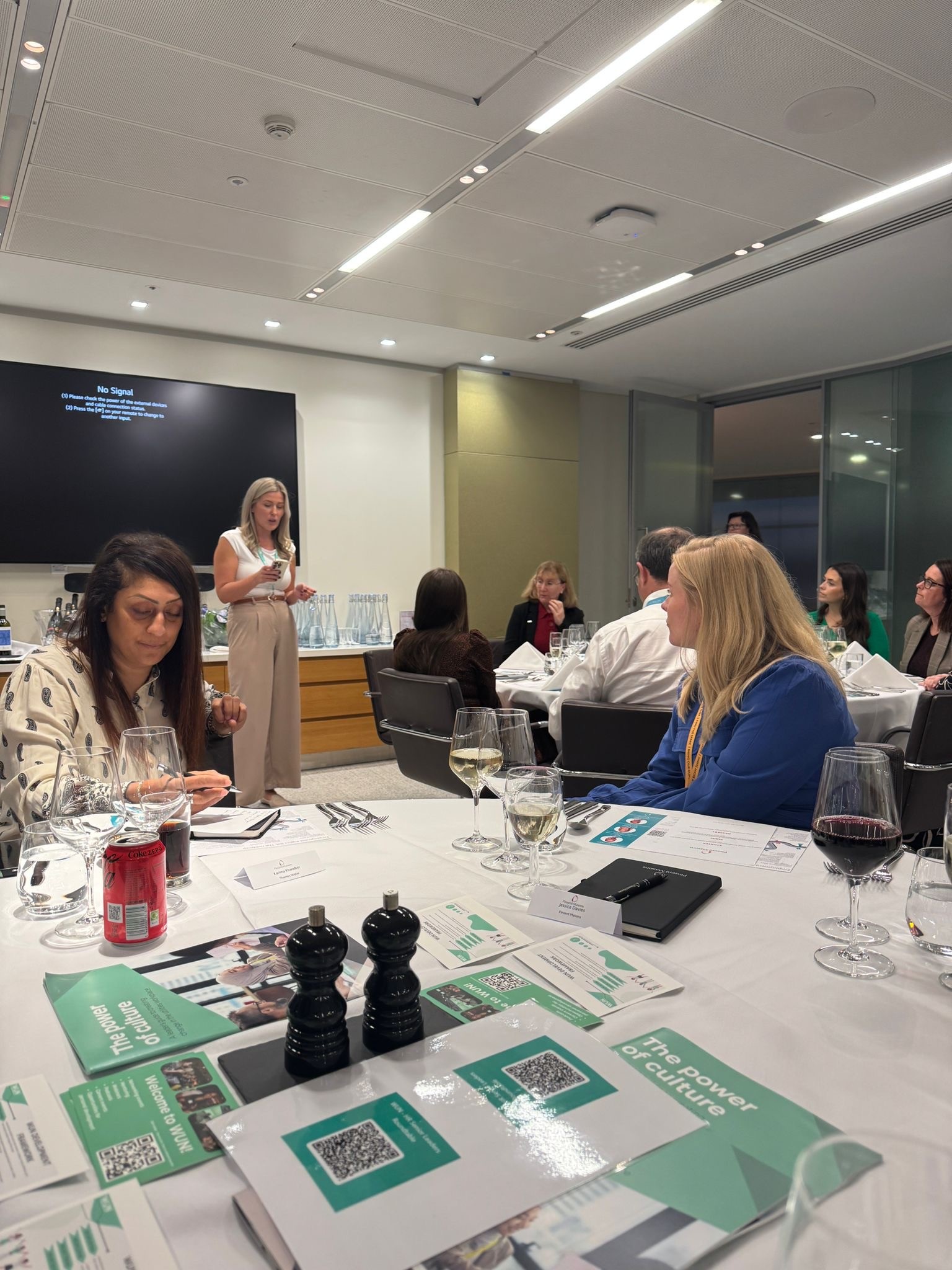From Policy to Culture: Why Speaking Up Still Feels Hard – and How Leaders Can Change That

A year on from the Equality Act changes, the conversation around preventing workplace harassment has evolved. Policies are in place, but the real challenge remains: creating cultures where people feel safe to speak up.
At our recent WUN Partner Dinner and Roundtable, hosted by Pinsent Masons in partnership with MGroup, senior HR leaders explored this challenge, shared practical strategies, and discussed the cultural shifts needed to make a real difference.
Policies Are a Start, But Culture Makes the Change
Policies provide a framework, but they don’t guarantee psychological safety. One of the biggest barriers to reporting inappropriate behaviour is a lack of transparency around what happens after a report is made – especially when the person being reported holds a more senior or influential position. If the individual in question is a CEO or senior leader, employees may fear that their report won’t remain confidential or could even be seen by the person being reported.
Confidentiality is essential, but uncertainty around “what next?” often deters people from speaking up. The consensus? Culture – not just compliance – drives change. Leaders must actively tackle the “after-reporting” gap and build trust that concerns will be handled fairly and constructively.
Legislation Sets the Baseline: Culture Drives Behaviour
The upcoming Employment Rights Bill – the biggest employment law reform in over 20 years – will raise the stakes even further. But legislation alone won’t create safe workplaces. Psychological safety is the foundation for:
• Encouraging people to raise concerns without fear.
• Driving behavioural shifts to eliminate harassment.
• Building inclusive cultures where everyone belongs.
Active Bystanders and Manager Capability
One powerful idea discussed was active bystanders – employees trained to intervene or report inappropriate behaviour, similar to First Aiders or Mental Health First Aiders.
This links to a bigger challenge: manager capability. Too often, managers are promoted for technical expertise, not people skills. Organisations need to equip managers to lead with empathy, handle sensitive conversations and model inclusive behaviour. Leading teams made up of people who think, look or work differently from you can be more challenging. It requires an extra level of self-awareness, curiosity and openness to truly lead inclusively.
Practical Examples That Work
• Protected Conversations: One WUN Partner added an option in their employee survey for confidential conversations, uncovering issues early and resolving them informally.
• Tailored Training: Another Partner developed gender-specific training to help women overcome imposter syndrome and leverage their strengths.
• Cultural Contribution: A third reframed “cultural fit” to “cultural contribution,” creating accountability for every employee’s role in shaping culture.
Generational Shifts and Cultural Ownership
Younger generations often call for greater transparency and accountability – although when it comes to issues like online harassment, many still hesitate to speak up. Our discussion concluded with a powerful metaphor:
“The party needs to be co-hosted by everyone, not just HR or D&I teams.”
Cultural ownership means:
• Everyone takes responsibility for creating safe, respectful workplaces.
• Leaders involve colleagues across the organisation in shaping solutions.
• Shared accountability becomes the norm.
Why WUN Is Leading This Conversation
In January 2024, WUN launched its #SpeakUp campaign after hearing too many stories of women not being heard or valued. Our surveys have revealed:
• 41% said their voice isn’t heard in meetings.
• 49% felt their opinions aren’t valued.
• 50% experienced behaviour dismissed as ‘banter’.
These findings drive everything we do – from confidence-building sessions and allyship panels to HR Director dinners like this one. Our mission is clear: to create workplaces where everyone feels respected, included, and empowered to speak up.
Key Takeaways
• Policies alone aren’t enough – culture drives change.
• Transparency matters – employees need clarity after reporting.
• Equip managers and bystanders – people skills are critical.
• Prepare for legislative change – the Employment Rights Bill will reshape the landscape.
• Cultural ownership is collective – everyone has a role to play.
How is your organisation moving from policy to culture?
Are you equipping your leaders and colleagues to truly “host the party”?
Holly Beeston, WUN Advocate